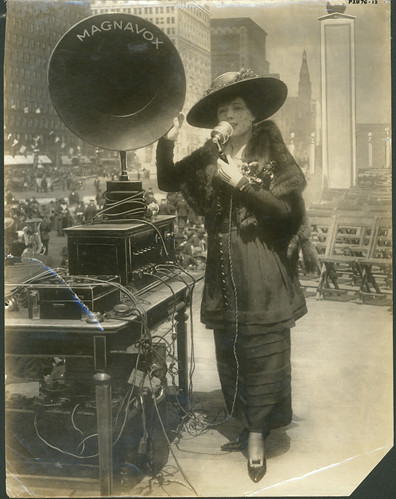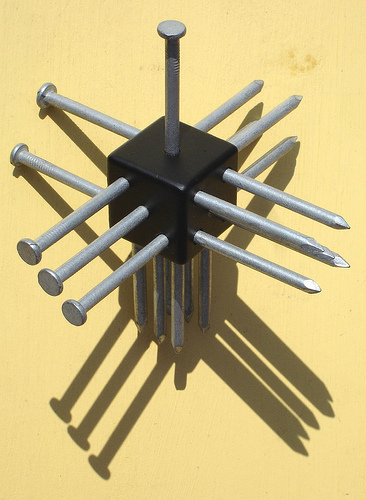“That calligrapher wrote three different texts
The first text could be read by him and others
The second text could only be read by him, not by others
The third text could neither be read by him, nor by others
I am the third text”
“That calligrapher wrote three different texts
The first text could be read by him and others
The second text could only be read by him, not by others
The third text could neither be read by him, nor by others
I am the third text”
Initially I thought technology was all about tools- things to digs holes with- write things with- it was all about things. I believe that technology is all about creating. We use technology to create and display our ideas. Man develops technology to help solve problems sometimes, but not always. Sometimes technology is developed for the sheer purpose of creating something- afterall who really needs an electric back scratcher!! Technology is tools for digging holes, but it is also text for displaying thoughts and feelings, it is music, and it is art. Martin Heidegger ( 1977) suggests that technology is the revealing as art is revealing- I think he is posing the question -” Is art and technology one and the same?” and I think the answer to this is yes.
This module has been a great introduction to the changing world of text and technology. I have been struck by all the different types of images that we (as a class) were able to find on Flick.r and how they all seemed to relate to technology and its impact on writing and literacy.
I like the collective space and can see how this experience will help when I introduce blogging to my students in the future. That being said, I like being able to post my musings to the forum within the Vista platform. I find it’s much easier to read and respond to others.

Fritzi Scheff demonstrating Magnavox for Fifth Liberty Loan in New York City, 1895, originally uploaded by Powerhouse Museum Collection.
“New” technology is being shown off here in the photo.
I selected a musical theme since music is termed the “universal language” and technology has provided a way for us to weave music into our life in a way that had never been possible. With high capacity portable players, we can immerse ourselves in our favourite tunes anywhere anytime. it is posited that so many songs have now been penned that the combinations of notes for a musical flow have been exhausted if one considers songs from all ages, all places. That is amazing to me.
The technology of music has blossomed in a way that allows us to hear a beautiful symphony without travel, the chants and drums of African and other world music at the flip of a key, and to record our own music using simple add-on technology for our computers.
Current home studio products exceed the multitrack capacities of the recording studios used by the Beatles. The proliferation of online distribution channels has revolutionized distribution.
The whole system surrounding music has significantly changed in the short history of recording. The sophistication of the tools as well. That is what appears to me to be the meaning of technology–both system and tools. The dictionary definitions I reviewed in OED and elsewhere are interesting from an etymologic perspective indeed but for simplicity, system and tools describes technology surrounding music.
I still like analog! Best wishes, Kathleen

“Technology” is almost as broad of a term as “text,” however; in the context of ETEC540, it’s a little easier to nail down. My new understanding of these two concepts is that they clearly have something fundamental in common. They are clearly both SYSTEMS. Examining them together has helped me see this significant overlap. Could we have “text” without “technology?” No, because text is a technology of communication. Could we have “technology” without “text?”

If you boil down all the definitions of “text” on medium heat and stirring often, what you get is essentially “language” soup. Like an onion, both concepts can be deeply layered and infinitely complex, but both have the same general purpose. Okay, so what is language then? Well, it’s a system of communication. And what’s the general purpose of an onion?? Well, to give us bad breath and make us cry.
Initial thoughts on technology… it’s an ‘ology’ – a science – but the word is used more as a catch-all category for the artefacts and techniques of human practicality . I’ve come to think of it more as a force, sometimes even a wilful or wayward one – as when you are staring up the left nostril of an important deadline and your computer crashes. (Never let an electronic or mechanical device know when you’re in a hurry. Whistle a tune. Look nonchalant.)
One of the great drawbacks of our current relationship to technology (either as a science or as a category of objects) – which is also a reflection of various aspects of our social structure, economy, etc. – is the extent to which objects and systems are designed (and supported) by people who don’t actually use them. I think this contributes greatly to our increasing surrender to semi-functional or dysfunctional systems, technical or social, on the premise that “that’s the way it is (or has to be)”. The “small cog in a huge machine” metaphor is increasingly applied to all areas of our lives, and the implication is not only that as individuals we are incomplete, uniform and replaceable, but that we cannot comprehend the scope and purpose of that of which we are a part. Bureaucracy is one of the results. And don’t let me get started on bureaucracy.
About technology, the OED says its earlier meaning (from the early 17th C) was “A discourse or treatise on an art or arts; the scientific study of the practical or industrial arts”, and from just a little later, “the terminology of a particular art or subject; technical nomenclature”. By the mid 19th C it was used to refer to “practical arts collectively”. By the latter half of the 20th C it appears again in the context of study or discussion; “technology assessment, the assessment of the effects on society of new technology”. (An interesting aside… technology has a homophone, tecnology – the scientific study of children. Apparently the spellchecker here hasn’t heard of it.)
Grandma’s 1927 Funk & Wagnall’s has a very short entry on the word – “The science that treats of the industrial or useful arts, such as metallurgy, brewing, weaving, building, etc. . . . The nomenclature or terminology of an art or science.” I like their notion of useful. Note that texere is to practice an art of interest to technology. (Lest you think F&W were Luddites, they also provide a highly detailed 1/3 page graphic of the Hoe Double Octuple Newspaper Web Perfecting printing press, with the rest of the page devoted to an explanation of printing technology and a list of related terms. Text again!)
Initial thoughts on text… when I’m thinking about a word I usually start with it as a ‘centre’ and work my way out, or around, imagining it as the centre of a web of other words – getting a sense of its full meaning and implications and variety through context (conTEXT).
text –> context –> subtext -> pretext…
So text starts as the written word, with implications of authority and permanence… then grows to define not only that with which it deals directly, but also that around it… and then to add nuance, shading, detail – and even doubt. (Now I’m thinking of Allan Fotheringham’s oft-used saying, “fuzzify the mudification”.)
And what does the dictionary say?
Text: from texere (Latin: to weave)… but as usage has developed, with much tendency to invoke authority and the establishment of the definitive. The emphasis is heavily on biblical scripture as defining text – or at least giving it its weight relative to lesser patches of common writing, wherever they may spring up. Purity creeps in there, too.
(In addition to the OED online I am also consulting my favourite dictionary: my grandmother’s 1927 edition of Funk and Wagnall’s New Standard Dictionary of the English Language, which is only very slightly smaller than the table it sits on and smells like the stacks in an old library. The two are essentially in agreement, but Grandma’s dictionary is more exciting – sometimes I find things she tucked between the pages. Rumour has it she hid money in there, too, but this may have been purely a ploy to promote literacy among her clan.)
Question to consider – what does textile have to do with text? Well, there’s the obvious root in texere… which makes each a form – or result – of weaving. A textile is “such as may be woven”. Which, if text derives from the verb to weave, means that words are textile – aren’t they?

Curiosity….. what are they reading?, originally uploaded by Tom@HK.
Whenever I come across the word, for some reason it brings to my mind the opposite. I always envision children who are deprived of formal education. Children who would love to be able to read and write, but can’t due to poverty or political unrest in their countries.
I live in Turkey where, in many small schools spread out in the eastern region, a book is a priceless object. Children read the same book over and over again just to satisfy their quench for discovering something new and different.
It is a very common occurence where illeterate elderly women, who were denied an education during childhood, complete literacy courses provided by the state. The joy on their faces when they are able to read the signs on the walls, the boards indicating the destination on the buses and any form of text is something to be seen. It must be a great thing to not have to make up a lie such as: “My eyesight is impaired, could you please read this for me?” when you know that it’s obvious that there’s nothing wrong with your eyesight.
I’m an EFL teacher living and teaching in Izmir, located on the Aegean coast of Turkey. I work in one of the top-notch, private primary schools. My third grade students love reading books in the native language, but prefer listening to an English book read to them with animation. I’m interested in this course from the literacy in second language perspective. I hope that the knowledge I gain from this course will help me to blend literacy and technology in the same melting pot.
Jennifer Ozturkeri
Spam prevention powered by Akismet